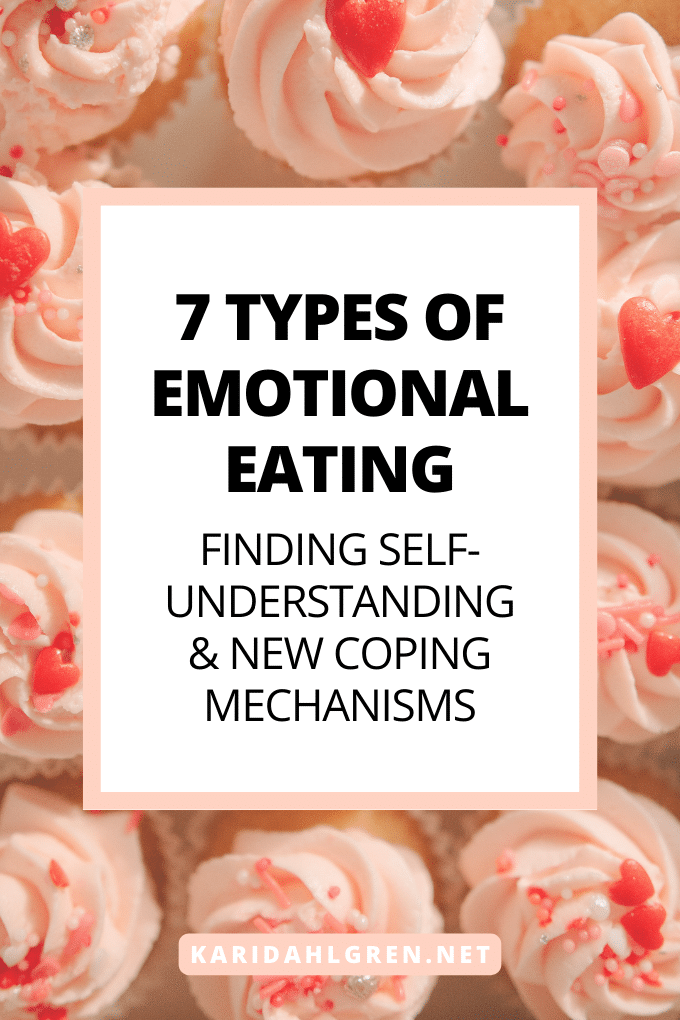
Emotional eating, as frustrating as it can be, is a human experience. It’s the spoonful of comfort we seek in a bowl of ice cream, the stress we dissipate through the crunch of a chip, and the joy we celebrate with a slice of cake. It’s no surprise, then, that there are many different types of emotional eating.
Recognizing patterns around emotional eating helps pave the way to a healthier relationship with food and with yourself. Awareness is the first step towards change; and not for the purpose of judgment or self-criticism, but to understand and navigate your emotions with compassion and kindness.
Understanding Emotional Eating
Emotional eating is the act of turning to food for comfort, stress relief, or as a reward, rather than to satisfy physical hunger. It’s the ice cream tub you reach for after a long, stressful day or the bag of chips that suddenly start humming when loneliness creeps in. It’s a frustrating experience, to say the least, especially if you’re trying to master how to stop eating when you’re full.
Furthermore, emotional eating isn’t just about seeking solace in food during negative emotional states; it can also occur in moments of happiness or celebration. For this reason, it’s helpful to familiarize yourself with the many types of emotional eating so that you can develop compassionate awareness, as awareness paves the way towards new behavior.
Speaking of compassion, it’s also crucial to recognize that emotional eating is not inherently problematic.[1] It’s a natural, human response to seek comfort, and sometimes food becomes that source of comfort. There’s nothing wrong with this until emotional eating becomes a primary coping mechanism, overshadowing other healthier ways of dealing with emotions, and leading to feelings of guilt, shame, or a detrimental impact on one’s physical health.[2]
The Most Common Types of Emotional Eating
The path to understanding and addressing emotional eating involves identifying the patterns that you may find yourself in, and then addressing the emotions directly. Up next, we’ll discuss the many types of emotional eating and then follow it up with a list of tips for addressing the root cause.
Here are some of the most common types of emotional eating:
1. Hedonic Eating
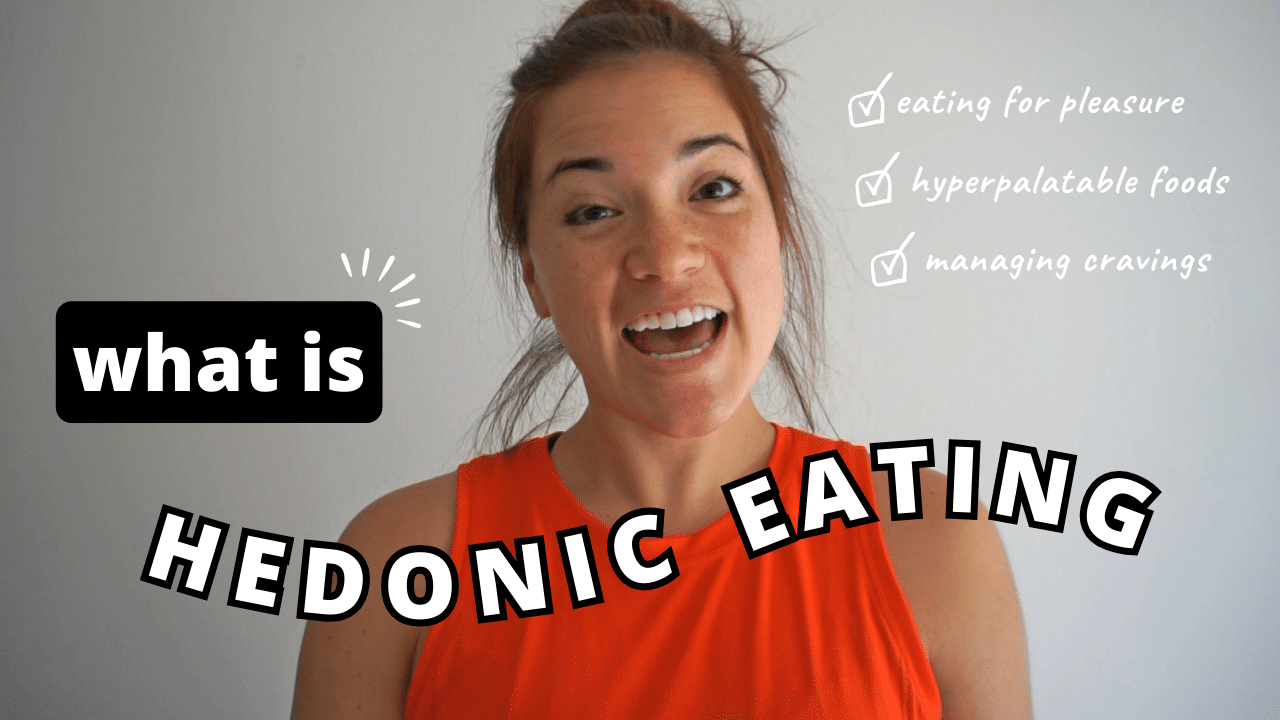
When you think of emotional eating, does your mind instantly gravitate towards stress eating or rewarding yourself with a snack after finishing a task? These examples involve emotional eating in response to discomfort. However, there’s a specific type of emotional eating that’s guided not by the avoidance of discomfort but the pursuit of pleasure: hedonic eating.
Hedonic eating, also known as “eating for pleasure,” involves compulsively eating hyperpalatable foods, which includes foods high in carbs, fat, salt, and simple sugars.[3] These pleasurable foods stimulate the body’s reward system, resembling the mechanisms of addiction.[4] However, while some clinical evidence supports the idea of food addiction, other studies “find little evidence.”[5]
On the topic of hedonic eating, it’s important to know that eating is supposed to be pleasurable. Enjoying your food or identifying as someone that really loves food does not mean that you’re a “hedonic eater.” Similarly, eating hyperpalatable foods like a slice of pizza doesn’t make you a “hedonic eater.”
Rather, hedonic eating is a type of emotional eating characterized by eating for pleasure despite a lack of physical hunger. If you’re hungry and you eat hyperpalatable foods, enjoy it. If you find yourself reaching for those foods out of emotional hunger, then it could be hedonic eating.
2. Avoidance Eating
Emotional eating can occur when experiencing both positive or negative emotions, and studies have found that people consume more food when experiencing either type of emotion.[6] Interestingly, both types of emotional eating fall into the avoidance eating category, which involves eating to avoid an unwanted emotion—positive or negative.
It may sound strange to reach for food because you don’t want to feel a positive emotion, but it’s actually quite understandable when you take a closer look. Often, positive emotion involves vulnerability, as whatever brought you joy might be taken away, which brings a layer of fear and anxiety to the otherwise positive experience.
This is something that I talk about in-depth inside my Stop, Drop, & Feel Masterclass, where I unpack the deep layers of emotional eating—and there really is a lot to unpack.
3. Boredom Eating

The next type of emotional eating is boredom eating, which is fairly straightforward: it involves the inclination to eat when bored, even without physical hunger present. Because this type of emotional eating is straightforward, let’s look at a very interesting study about it.
Researchers divided participants into groups and asked them to perform a boring task. One group was presented with free access to candy while another group was presented with free access to self-administered electrical shocks. That’s right—a self-zapping system.
The obvious outcome was that people ate more candy when they were bored.[7] What I found quite shocking is that people were also more inclined to shock themselves with electricity when they’re bored, illustrating a strong preference to feel anything, including physical pain, over feeling bored.[7] Of all the types of emotional eating, boredom eating is the most compelling for this reason.
4. All-or-Nothing Eating
Are you familiar with the ‘all-or-nothing’ mindset? When this pattern influences your eating behavior, it can turn a single cookie into a whole batch—particularly if you’re trying not to eat cookies or if you’ve labeled them as “bad.” All-or-nothing eating involves oscillating between strict dietary restraint and unrestrained indulgence.
Within this type of emotional eating lies an intriguing phenomenon: The Last Supper. This pattern emerges when the start of a new diet is around the corner, encouraging a “last” indulgence in the foods that won’t be allowed later.[8], [9] The Last Supper is the ‘one last hurrah’ before the dietary gates close, leading to excessive consumption driven not by hunger but by the anticipation of future restriction.[10]
5. Guilty Eating
Do you ever feel guilty after eating something that was off-limits or eating in secret? This is the essence of guilty eating, which is a type of emotional eating steeped in feelings of remorse or self-criticism following the consumption of “forbidden foods.”
Studies indicate that guilty eating often stems from a perceived deviation from dietary goals or societal standards of health and fitness.[11] This deviation isn’t merely a matter of physical health; it’s intimately tied to one’s self-concept and the quest for self-control.
6. Rebellion Eating
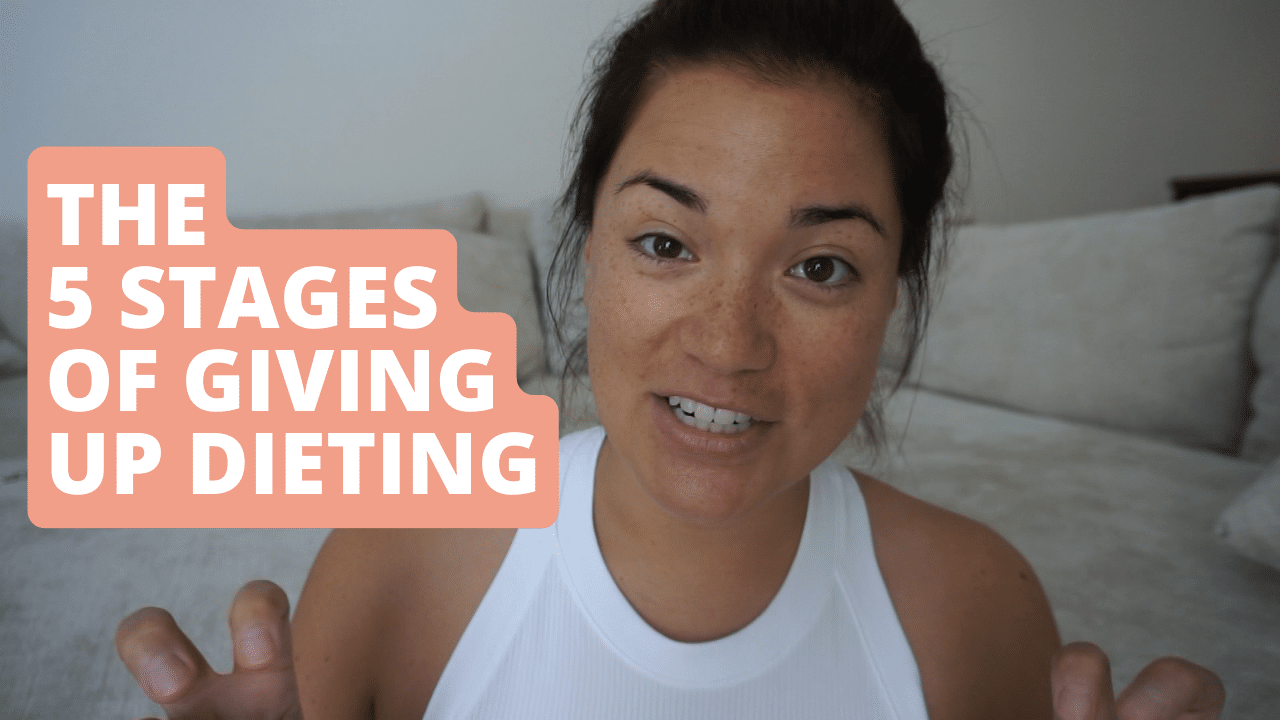
Bestselling author in the realm of emotional eating, Geneen Roth, famously says that for every restriction, there is an equal and opposite binge. Those of us that struggle with compulsive eating know this to be true through both intuition and our lived experience. Furthermore, plenty of clinical evidence illustrates that dietary restraint is a predictor of overeating tendencies.[12], [13], [14]
There are many, many factors involved—one in particular is the “forbidden fruit” effect, where we psychologically want what we can’t have.[15] When researchers asked a group of chocolate lovers to resist chocolate for two weeks, they craved it even more.[16]
However, not all rebellious eating is the result of dietary restraint. Some people experience this type of emotional eating during the stages of giving up dieting, as I outline in the video above. Fortunately, it’s just a stage, which means that you can move through it.
7. Entitlement Eating
Speaking of giving up dieting, entitlement eating is a type of emotional eating that might come up during that process. Entitlement eating is characterized by a sense of obligation to indulge in once-forbidden foods, even when they don’t align with your genuine desires or physical hunger.
For example, when I first gave up dieting back in 2016, I distinctly felt obligated to eat unhealthy “junk” foods just because I could! However, it wasn’t a true desire—it was an inauthentic pressure that I felt. Once I was able to recognize it, I was able to eat normally (aka, according to my body’s true desires, not a sense of strange obligation).
How to Address Emotional Eating Patterns
Learning how to address the different types of emotional eating can feel like navigating through a maze of cravings, emotions, and habits. Fortunately, when you focus your attention towards your mindset and your intuition, you can find better footing to work on a more balanced relationship with food.
Here are some strategies to help you address the types of emotional eating that most resonate with you:
- Do the Stop, Drop, & Feel: Because all types of emotional eating stem from a feeling—positive or negative—it helps to develop tolerance for your full spectrum of emotions. The Stop, Drop, & Feel method asks you to train in sitting still with the edgy emotions that trigger the desire to eat beyond fullness. Similar to urge surfing, emotions often lose their power when they have your full attention without any resistance.
- Develop curiosity for primary emotions: Primary emotions are the foundational feelings that often give rise to secondary emotions. For instance, boredom frequently serves as a secondary emotion, suggesting that boredom eating might actually be a response to a more profound, underlying emotion. Use tools like the Stop, Drop, & Feel to develop curiosity and awareness around your true feelings.
- Eat intuitively: Intuitive eating can help you heal diet-triggered causes of emotional eating like guilty eating. Intuitive eating has been shown to help reduce anti-fat attitudes.[17] This means that, the more you listen to your body to decide what to eat instead of an external set of rules, the less guilt you might feel after eating.
- Give yourself permission to eat: Dieting instills a fear of eating certain foods, which perpetuates certain types of emotional eating like rebellion eating. By giving yourself permission to eat the foods that appeal to you without judgment, you neutralize the emotional charge of certain foods.
- Prioritize satisfying meals: Even if you struggle with emotional eating, it does not mean that you don’t deserve to eat satisfying meals. The element of satisfaction is paramount. Without it, you’re likely to seek additional fulfillment later on when you’re likely already full.[18]
- Harness the right books and tools: In another post, I outline some of the best books on emotional eating that I highly recommend. I also have plenty of my own tools that can help with emotional eating—the standout being the Stop, Drop, & Feel Masterclass, which is perfect for anyone that wants to the emotional skills necessary to stop compulsive eating.
Addressing emotional eating patterns is not about strict rules or denying yourself pleasure. It’s about developing a deeper connection with your body, understanding your emotional landscape, and nurturing a compassionate and mindful relationship with food.
Overcoming Emotional Eating with Kindness & Compassion
Each type of emotional eating carries its own challenges and insights, but they all share a common thread: they are signposts, guiding us to understand our deeper needs and desires. They encourage us to pause, reflect, and choose paths that lead to healing and growth, not just in our eating habits, but in our overall approach to life.
By practicing strategies like the Stop, Drop, & Feel and cultivating a curiosity about your primary emotions, you can address the root cause of emotional eating patterns. This journey is not just about food—it’s about discovering and honoring your authentic self and your authentic emotions.


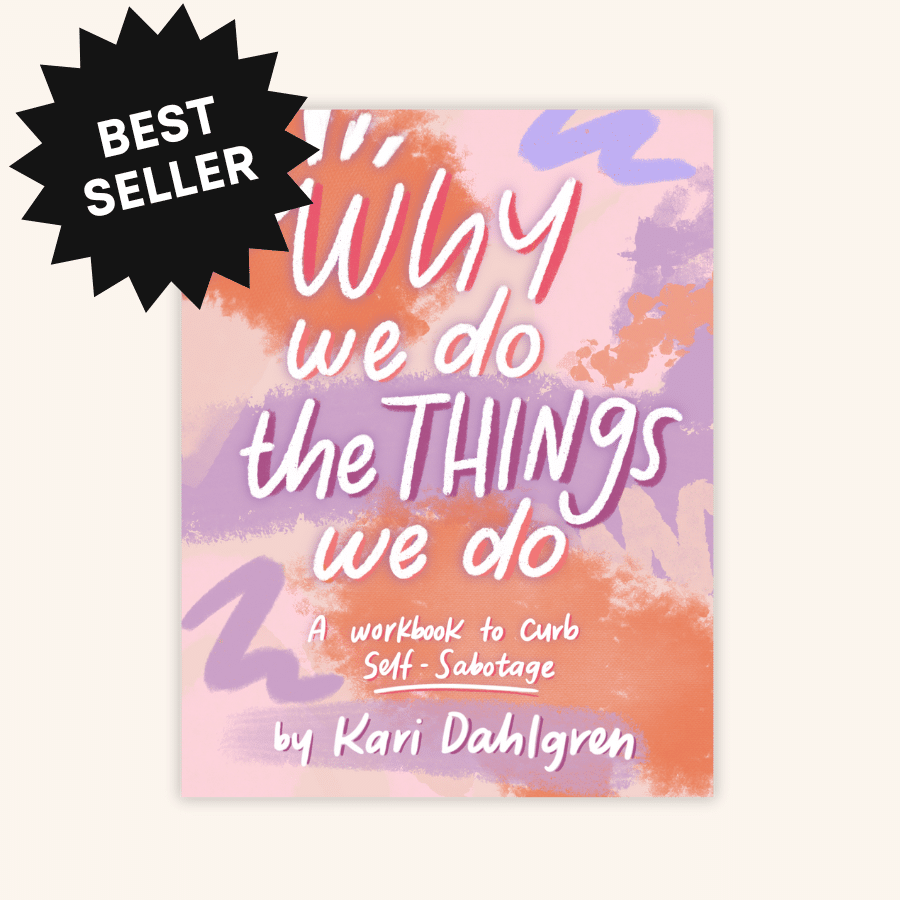
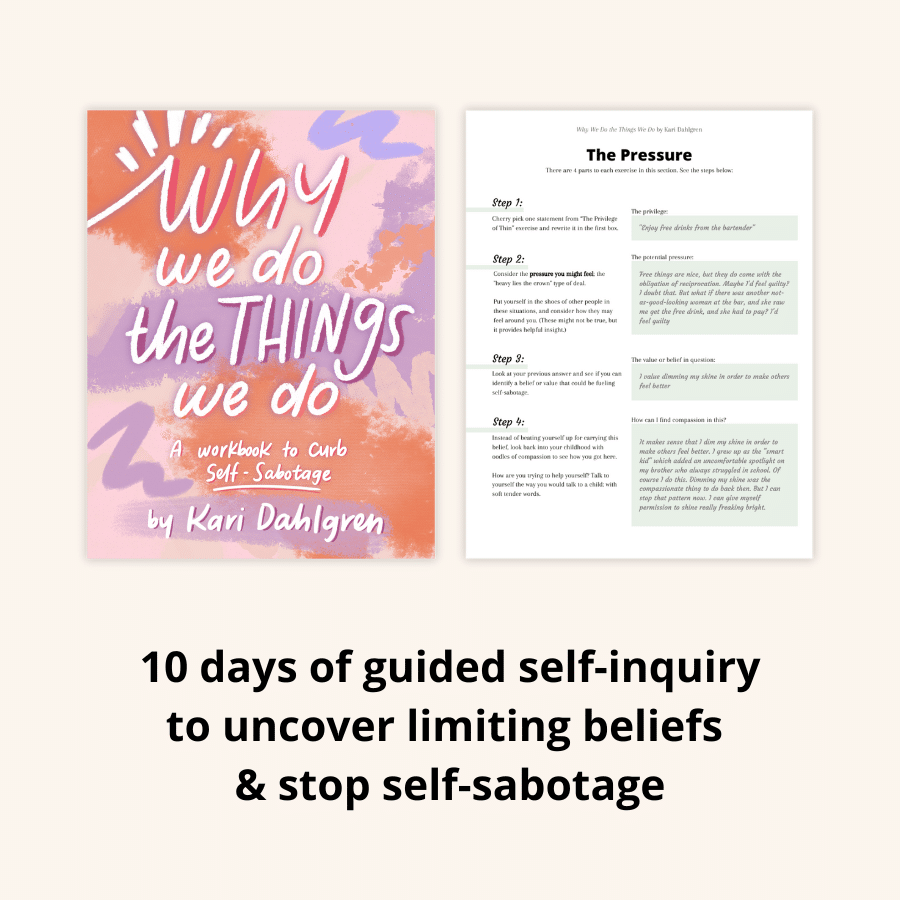
Your article is very good and impressive, I have read and re-read it many times and I like your writing style.
Thank you so much!! 🙂
Hello kari ! I’ve been struggling with body image for a little while now, especially the scale. Im that type of person that craves knowledge about everything possible, thats why i did lots of research on weight loss, weight managing, dieting etc… None of the other sites i read got my emotions going like what you wrote. To me you seem wery positive and motivating toward eating healthy , but not in a toxic = like a ballerina teacher) way, but in a calming way that seems like something that you are capable of keeping up with for maybe the rest of my life. Im excited to see what youre capable of !
Hi Marta!! Wow, I don’t think my heart can melt any more than it did reading this. Thank you. You are so kind, and I think we can ALL relate to you when you say ‘like a ballerina teacher.’ I think we all know what it’s like when we apply super strict rules to our diet, and how miserable that is. I am glad you’re here, and I look forward to hearing from you again I hope!
Thank you for your insightful knowledge on our relationship with food! I did a 11 week course a few years ago on “Food, the scale and how it influenced our life daily”. And all I learned was that we get comfort out of food and as you say: we cherish ourselves with fatty carb-riched foods to feel better. For me it is to relax! On weekends a pizza, bottle of wine and Salt and vinegar chips is the ultimate to spoil myself and I immediately relax and I can breathe! And then I just carry on till Sunday night; eating all the wrong stuff because I was “weak and bad”! I have to break the cycle because I’ve end up 20kg overweight! I lost 20kg 3 times in my life but just gaining it all back because I reward myself for the loss and suffering while life is so hard and stressful. Hopefully if I work through your book I will get that light bulb 💡 moment to help me figure out an answer how to stop and see the bigger picture of healthy foods is just as rewarding!
Thanks for your passion and give us a book for free. It’s much appreciated!
Kind Regards
Anna-Marie Groenewald
Hi Anna-Marie! Your story is so relatable. I speak on behalf of myself and so many others. The restrict-binge cycle can be relentless, and I hope that by turning towards more spiritual practices, like I shared here, you can find some reprieve. My hope is that the highs and lows slowly become less dramatic and eventually it becomes just the normal ebb and flow of life. Thank you for bravely sharing your story here for all of us 🙂 I hope to hear from you again sometime soon!